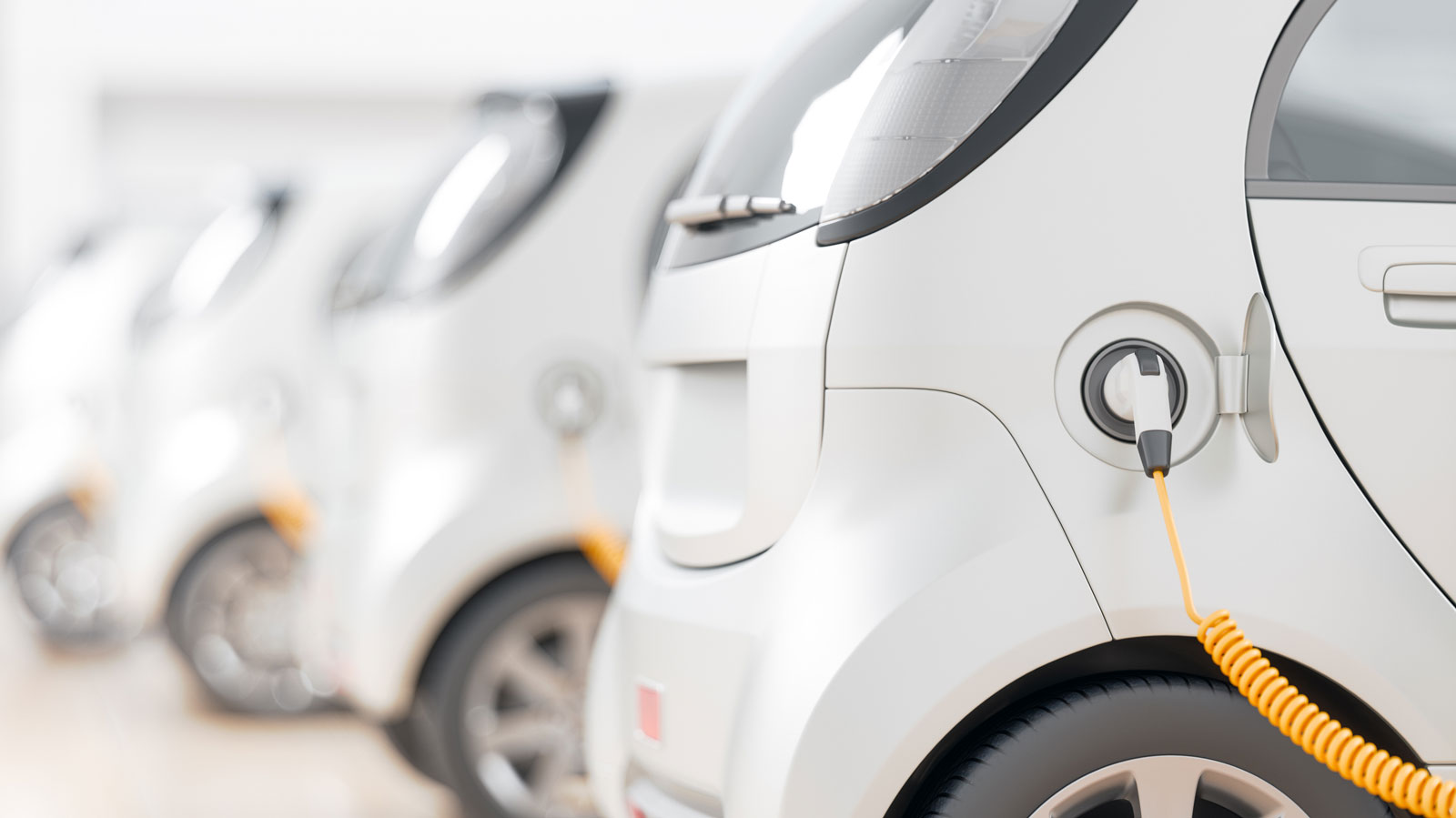
2022 State of Electric School Buses in Colorado
Colorado is a leader in the nationwide transition to cleaner and healthier electric-powered school buses
Our new report finds Colorado ranks second in the country for total public funding for transitioning to electric school buses and eleventh for the number of committed electric school buses. To build on its leadership and take advantage of additional funding opportunities, we offer recommendations to Colorado lawmakers, school districts, and utilities going forward.
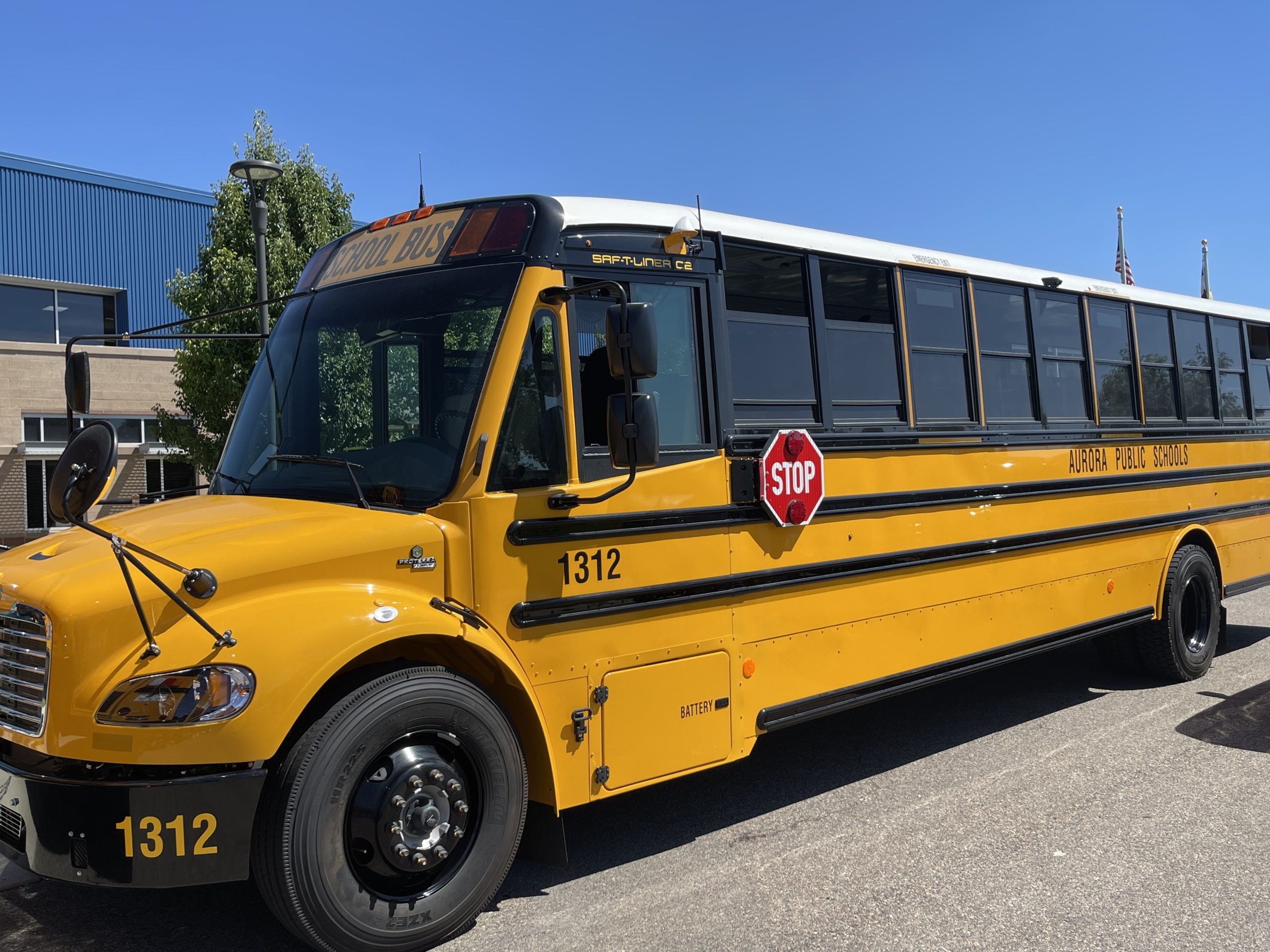
Report: 2022 State of Electric School Buses in Colorado
The 2023 State of Electric School Buses in Colorado is now available here.
Colorado: A leader in public funding for electric school buses
The yellow school bus is an icon of American culture, shepherding thousands of children in Colorado to and from school, field trips, and sports competitions.
Unfortunately, for decades fossil fuel school buses have exposed kids to toxic emissions both inside when they ride and outside as they wait to board.
Following the passage and signing of SB22-193 in June 2022, Colorado became the leading state in awarded funds per capita to transition these buses from the current fossil fuel buses to cleaner, electric school buses. While California has since approved a massive $1.5 billion in electric school bus funding as part of the FY23 budget, Colorado remains second nationally in both overall awarded funds and per capita funding.
According to data provided by the Atlas EV Hub on electric school bus spending as of May 2022, Colorado has allocated a total of nearly $75 million to the electric bus transition, including about $10 million the state had received in previous years from the Volkswagen scandal settlement. The state is second nationally in total electric school bus funding, behind California but ahead of large states like Florida, New York and New Jersey.
Top 10 states for total awarded electric school bus funding (May 9, 2022)
Electric school buses reduce pollution and save money
Electric school buses protect kids’ health by avoiding exposure to toxic diesel emissions. Diesel exhaust is classified as a likely carcinogen by the EPA and contains a mixture of very fine particles of carbon and toxic gasses including Benzene, which is classified as a known carcinogen.
Inhalation of diesel exhaust has been linked to numerous health problems, including lung cancer, asthma, bronchitis and other respiratory illnesses. According to a study from Yale University, “there is no known safe level of exposure to diesel exhaust for children, especially those with respiratory illness.”
Studies show that levels of diesel emissions inside school buses can be up to 4 times higher than outside the bus, translating into a significant increase of risk to the children inside.
In addition, the transportation sector is the leading source of greenhouse gas emissions in Colorado.
By eliminating internal combustion engines and tailpipes, electric school buses do not emit harmful air pollution and produce much less carbon emissions – even if the electricity used to power it is generated in part from fossil fuels. Based on Colorado’s current energy grid mixture an electric vehicle produces about 50% less carbon pollution than a traditional gas-powered alternative.
Replacing all of America’s school buses with electric buses could avoid an average of 5.3 million tons of greenhouse gas emissions each year. Given Colorado’s school bus fleet of 6,838 total school buses (of which less than 1% are currently electric), that equates to approximately 72,483 tons of ghg emissions annually.
Electric school buses can also save districts money over the long term through lower maintenance and fueling costs. An analysis of the fuel costs for the electric school bus in Kremmling, CO found it was three times cheaper to fuel than the diesel version.
The cost savings for school districts are set to grow. Large battery size and long idle periods make electric school buses ideal candidates for vehicle-to-grid (“VTG”) technology, where buses can use their batteries to store low cost energy and sell it back to the grid during periods of high demand. Electric school buses can also be used for vehicle-to-building (“V2B”) applications, which allows the buses to provide backup power to buildings and critical facilities like hospitals and shelters during emergencies.
This type of energy storage can make the grid and our communities more resilient by enabling the grid to better absorb shocks and thereby prevent or manage disruptions – which in turn can mitigate the scale, length and impact of power outages on communities. This is especially important in our rural and mountainous regions that see more extreme weather.
Boulder Valley School District (BVSD) has six committed electric school buses. Landon Hilliard, the Safe Rides Coordinator for BVSD, oversees the purchase and implementation of school buses for the district. When asked why they were an early adopter of an electric school bus he said:
There’s a real call to action for us to electrify our fleets and try to reduce the footprint of the transportation sector that’s harming people, harming the globe, and if you think about tailpipe emissions at a local level about the students riding the bus, there are fumes and toxins that aren’t the best for human health.Landon Hilliard
Safe Routes Coordinator, Boulder Valley School District
Local communities are enjoying the benefits of new electric school buses in both expected and unexpected ways. “It’s a great conversation starter,” said West Grand School District Director of Transportation Bethany Aurin, noting that she receives calls from other curious districts in Colorado and across the country. It’s being incorporated into the high school curriculum and has also “been a great source of pride for our students and our community.”
Money from EPA’s Clean School Bus Program and Colorado’s state legislation provide unprecedented resources for school districts
In May of 2022, the EPA launched a Clean School Bus Program, funded by the Bipartisan Infrastructure Law, that provides $5 billion in funding over five years (2022-2026) to replace existing school buses with zero or low-emission models. The program will provide rebates to school districts, nonprofit school transportation associations and tribal organizations to replace older, diesel buses with newer electric or low-emission models.
The application process for the first round of funding closed on August 19, 2022. Applicants will be selected and posted by the EPA in October 2022, which will prioritize high-need or disproportionately impacted school districts, rural districts, and Tribal school districts. Four additional rounds of funding will be allocated annually through 2026, and school districts can continue to find the latest information about the award process including links to apply on the EPA Clean School Bus Program website: https://www.epa.gov/cleanschoolbus/school-bus-rebates-clean-school-bus-program.
In addition, the federal government passed the Inflation Reduction Act in August, which includes $1 billion for electric heavy duty vehicles including electric school buses.
On top of federal funds, Colorado’s General Assembly and Governor Jared Polis worked together to invest $65 million to incentivize school districts to purchase new electric school buses rather than traditional diesel models. The program will offer rebates to cover the cost differential between diesel and electric models alongside associated
Colorado ranks 11th nationally with 36 committed electric school buses
An electric school bus is considered committed once a school district or fleet operator has been awarded funding or has a formal agreement to purchase it from a dealer or manufacturer. As of June 2022, Colorado ranks eleventh nationwide with 36 committed electric school buses. The state is well positioned to capitalize on both federal and state funds to increase that number in the coming years.
Committed electric school buses per state (June 2022)
Within Colorado, school districts in Aurora and Steamboat Springs lead the state with 7 buses each, followed closely by Boulder and Aspen both with 6.
2022 Electric School Bus Funding Timeline
- May – EPA announces $500 million Clean School Bus Program, funded through the Bipartisan Infrastructure Law
- June – Colorado funds $65 million in rebates for new electric school buses, the largest per capita investment nationwide
- August 12: Congress passes the Inflation Reduction Act with up to $1 billion in funding for heavy duty electric vehicles
- August 19: First round of applications for EPA program closed
- October – First round of EPA program awardees announced
- 2023-2026: Four more cycles of federal financing released
RECOMMENDATIONS
As thousands of kids head back to school this fall, Colorado has only a small number of electric school buses in operation relative to the overall fleet. However, the combination of both federal and state funding has Colorado well positioned to dramatically increase the number of electric school buses in operation in the next few years.
Colorado school districts should:
- Create an account on www.SAM.gov, which is a precursor to applying for federal funds. It is free to set up an account and four additional rounds of funding will be available through 2026.
- Connect with a ReCharge coach who can provide detailed information about funding and incentives.
- Leverage all financing programs available, including both federal and state grant programs.
- State: Charge Ahead Colorado offers grant funding for EV charging projects and Colorado Recharge Coaches provide coaching services for EV infrastructure and development in every county in the state. The Colorado Department of Public Health and Education will release more program details in Fall of 2022. The state funding is designed to complement and leverage federal funds for school districts.
- Start a conversation with your utility company as early as possible to see what resources they can provide. Many utilities offer consulting services to assess wiring and charging needs, rebates to reduce the costs of the wiring upgrades and chargers, tariffs to save money on charging, and some even have rebates for the vehicles themselves. In addition, work with your utility to ensure a competitive charging price system is in place.
- Pass a resolution to end the purchase of new fossil fuel buses, and transition to a 100% zero-emission fleet. This can send an important market signal and help bring the school community together behind a single goal.
Lawmakers and regulators should:
- Find additional funds to ensure all school districts have the resources to transition to a 100% electric fleet.
- Remove barriers and incentivize utility companies to develop effective and consistent rates for electric school bus charging.
- Financially support research and development in electric school bus technology, including vehicle-to-grid and vehicle-to-building technology.
Utility companies should:
- Continue to reduce emissions and increase renewable energy capacity, making electric buses even cleaner.
- Develop turnkey programs to assist school districts in assessing their charging needs and providing incentives for charging infrastructure.
- Establish bulk purchase savings programs to lower costs for school districts.
- Create pricing structures that incentivize school districts to use vehicle-to-building and/or vehicle-to-grid opportunities from school buses.
- Support development of vehicle-to-grid pilot programs with school districts.
ACKNOWLEDGEMENTS
The author wishes to thank the following for their assistance and suggestions:
- Katrina McLaughlin, Clean Energy Associate, World Resource Institute
- Spencer Burget, Policy Analyst, Atlas EV Hub
- Aaron Kressig, Transportation Electrification Manager, Western Resources Advocates
- Donald R. Penny, Fleet Manager, Denver Public Schools
The author bears responsibility for any factual errors. Policy recommendations are those of the CoPIRG Foundation. The views expressed in this report are those of the authors and do not necessarily reflect the views of our funders or those who provided review.
Through research, public education and outreach, the CoPIRG Foundation serves as counterweights to the influence of powerful special interests that threaten our health, safety or well-being.
Topics
Authors
Alexandra Simon
Public Health Advocate, CoPIRG Foundation
Alex is an advocate on Colorado-based campaigns to promote a healthier, cleaner and safer world. She previously served as the Director of Strategic Planning for The Public Interest Network. Alex lives in Denver, where she enjoys hiking, skiing and seeing live music.
Find Out More
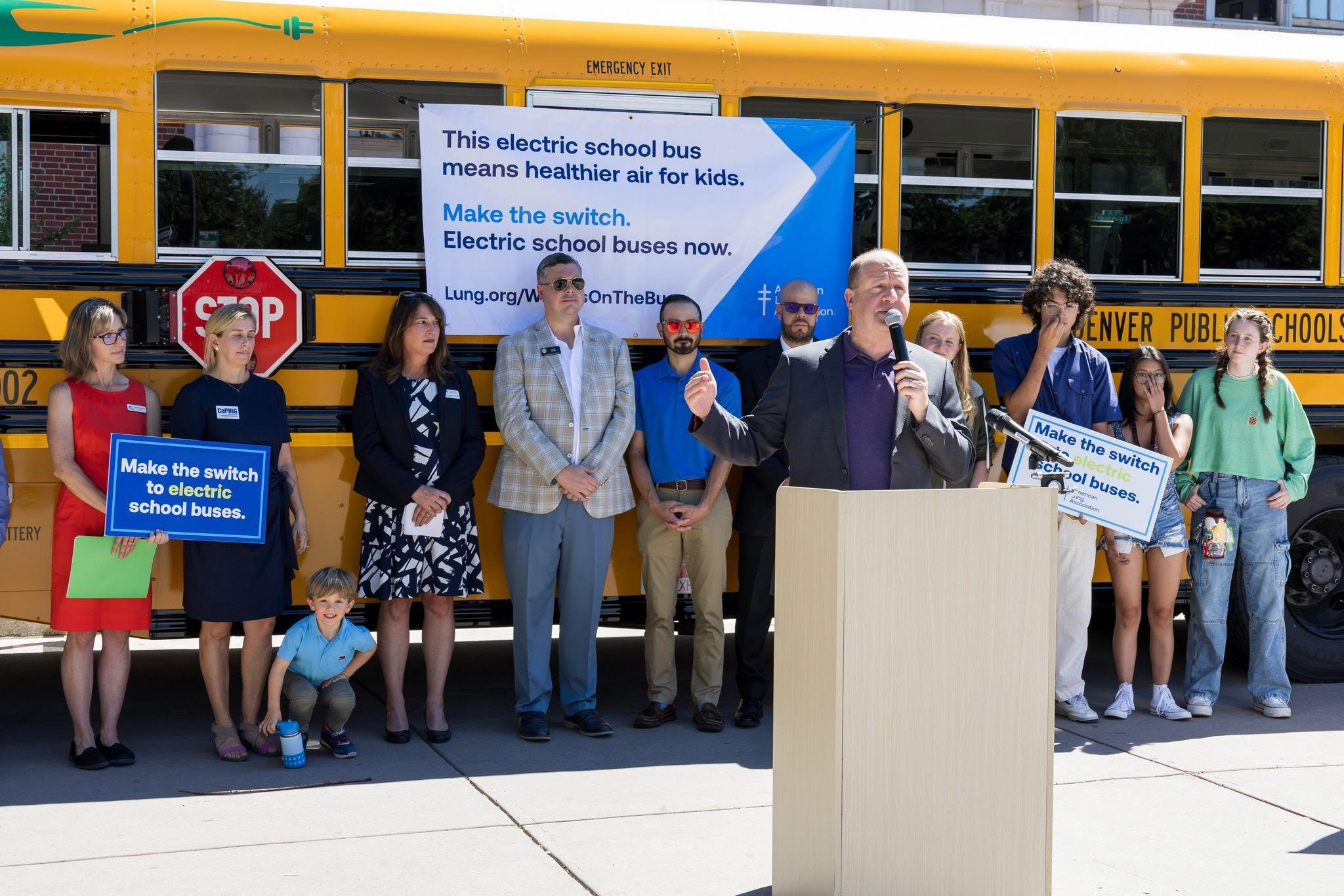
2023 State of Electric School Buses in Colorado
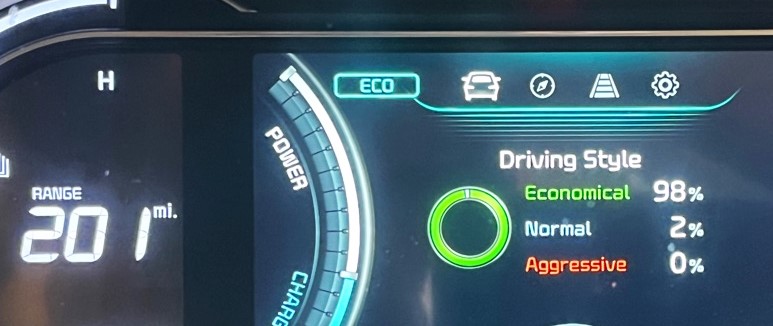
Electric vehicles are good. We can make them better.
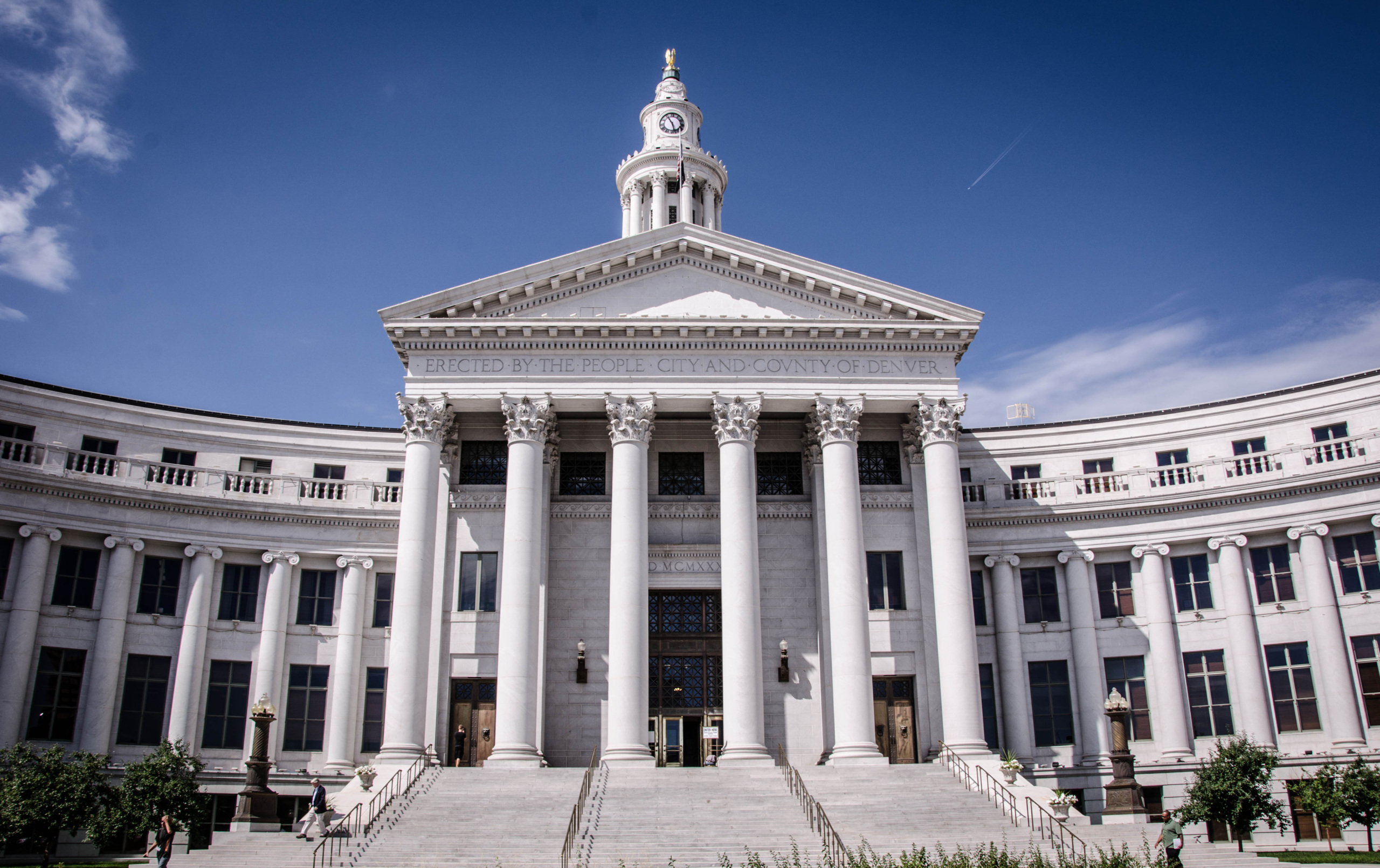
A Greener, Healthier Denver
